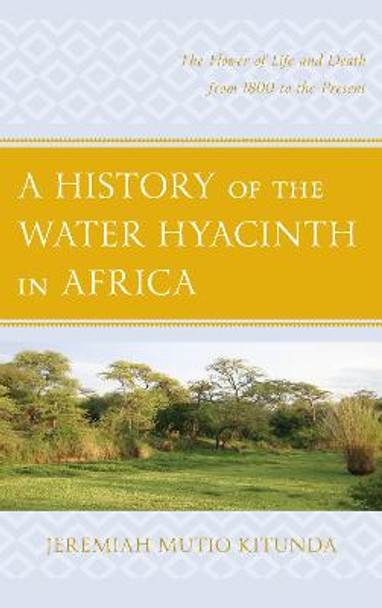Description
About the Author
Jeremiah Mutio Kitunda is associate professor of history at Appalachian State University.
Reviews
This book is a fine addition to Africa's environmental and economic development history. * International Journal of African Historical Studies *
Hyacinth, it turns out, loves and haunts human development. The various colonial and national projects for the engineering of water and watercourses in twentieth-century Africa created just the conditions it needed to spread, causing problems everywhere it went: clogging rivers, dams, lakes, and canals, damaging fish populations, and disrupting trade and navigation. In a real sense, hyacinth hid within-or 'backpacked' on-the rhetoric and purchase of 'progress.' As a relentlessly precise gazetteer of this dance between human endeavor and ecological response, Jeremiah Mutio Kitunda's study invites us to rethink the boundaries not only between the human and the natural, but also between the colonial and the postcolonial, and even the 'modern' and the 'postmodern.' -- Paul A. Custer, Lenoir-Rhyne University
Through detailed regional analyses of the introduction, spread, and attempts to control water hyacinth in Africa, Jeremiah Mutio Kitunda deepens our understanding of the complex and dynamic relationship between humans and nature. As it evolved from a mere object of beauty to an insidious weed, the water hyacinth choked many of Africa's waterways, challenging people to find ways to either control or utilize it. Kitunda's study illustrates the unintended consequences of biological exchanges and how innovative strategies are needed to transform the plant from a weed back into a human ally. -- Heather J. Hoag, University of San Francisco
Jeremiah Mutio Kitunda's encyclopedic survey of the history of the water hyacinth in Africa is an important contribution to environmental studies. His personal field work as well as prodigious research in as yet untapped sources lends it a unique perspective. It covers the introduction of the plant as a phenomenon of colonialism, examines varied attempts to control the plants pernicious effects in both colonial and post-colonial Africa, and-perhaps most importantly-offers new approaches to solving the problem. -- W. Scott Jessee, Appalachian State University
Book Information
ISBN 9781498524629
Author Jeremiah Mutio Kitunda
Format Hardback
Page Count 336
Imprint Lexington Books
Publisher Lexington Books
Weight(grams) 712g
Dimensions(mm) 239mm * 157mm * 26mm





